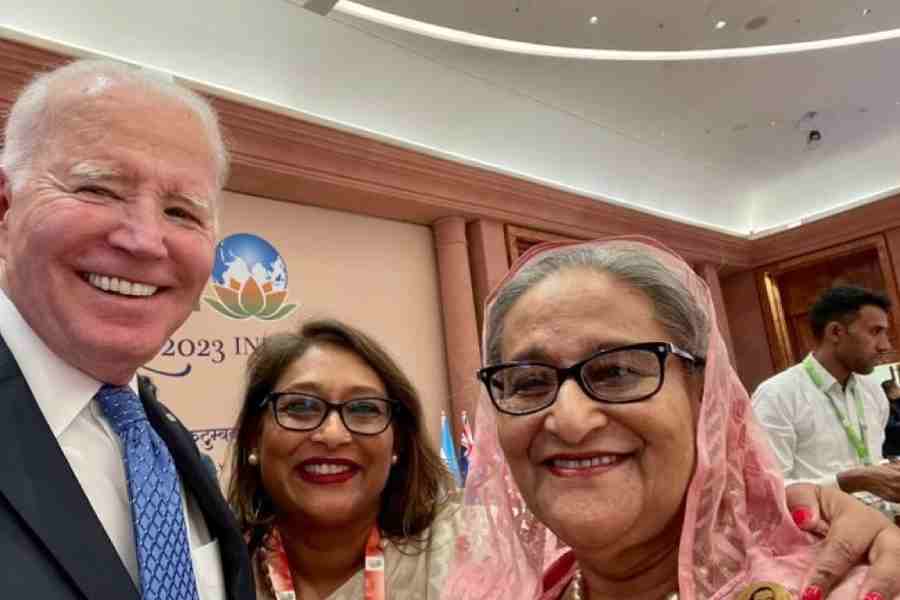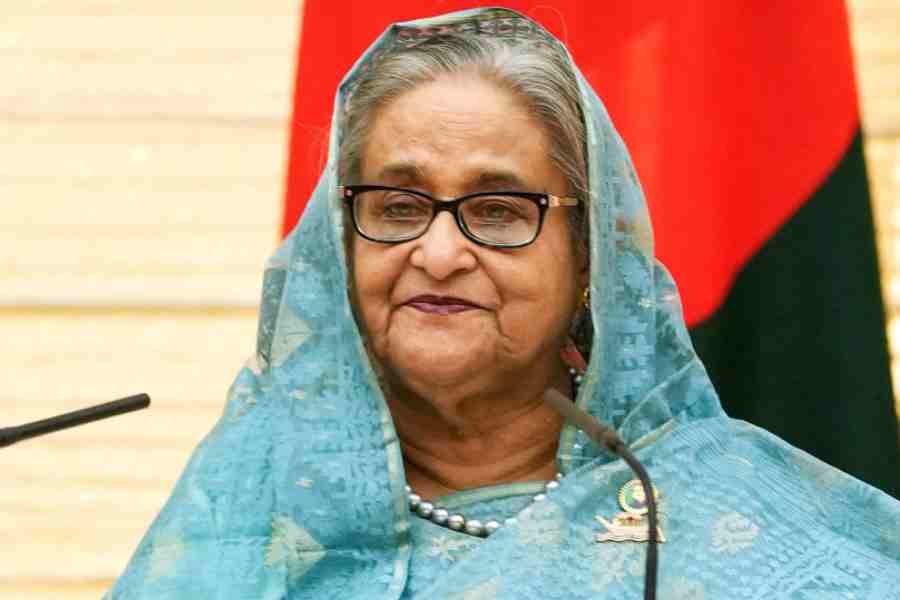Signals from the Narendra Modi government that it would support candidate Saima Wazed, daughter of Bangladesh Prime Minister Sheikh Hasina, for the top World Health Organisation (WHO) post in Southeast Asia has stirred consternation in some public health circles.
India is among 10 countries in the WHO’s South East Asia Region (SEAR) that will cast a vote each to elect SEAR’s next regional director. They have to choose between Wazed, a school psychology specialist, and Shambhu Prasad Acharya, a public health specialist from Nepal.
The WHO announced the two candidates’ names on August 18. The health ministers from the 10 countries will vote at a closed-door meeting in New Delhi between October 30 and November 2.
Some health experts are worried that while Modi has long decried dynastic politics at home, his government is leaning towards the daughter of a neighbouring Prime Minister, a stand that one expert said “prioritises geopolitics over public health”.
Their concerns come against the backdrop of a joint letter in July to the WHO from 60 global health experts, including 16 from the SEAR, seeking “greater transparency” in the process leading to the elections of its regional directors. The Eastern Mediterranean and Western Pacific regions will also elect new regional directors this year.
The letter has called for online public platforms and open town hall events where the candidates can participate to make the election process “more transparent and accountable by enabling greater public scrutiny” of the candidates.
Three signatories to the letter have told The Telegraph they believe that Wazed lacks the technical, administrative or public health experience to serve as the SEAR’s regional director and that Bangladesh has nominated her because she is Sheikh Hasina’s daughter.
An email query sent by this newspaper to Wazed on Friday, seeking her reaction to such concerns, had not evoked a response at the time of going to the press.
But an independent health expert defended her candidature.
“Surprised to see a well coordinated negative campaign going on against Bangladesh(‘s) candidate for WHO SEAR RD ...,” Monir Islam, former WHO representative in Thailand and Namibia and former director of health systems development at the WHO, Geneva, wrote on X on Friday.
Wazed obtained an MSc in clinical psychology from Barry University (Miami, the US) and has been chair of Bangladesh’s national advisory panel on autism and neuro-developmental disorders for 11 years. Her LinkedIn webpage also lists a Doctor of Education (EdD) in organisational leadership in human resource development among her qualifications.
She has also been a member of the WHO’s expert advisory panel on mental health for over nine years, and an adviser to the WHO’s director-general on mental health and autism for four years, according to her curriculum vitae, submitted by Bangladesh’s permanent mission in Geneva affirming her candidature.
Acharya, Nepal’s candidate, is a veteran public health specialist with a PhD in public health, health policy and financing from the University of North Carolina in the US. He has spent over 30 years in the WHO managing an array of assignments.
“If public health is the sole criterion on which countries vote, Acharya will absolutely win, but when the other candidate is the daughter of a Prime Minister, it is not an equal battle,” one of the signatories, who has worked with the WHO, told this newspaper.
“We are worried about where India stands because India can influence the others.”
The regional director represents the first line of management in responding to complex health emergencies, and has also to function as a health diplomat, facilitating inter-governmental cooperation across health fields.
“If she (Wazed) becomes the regional director, the WHO will be at risk of losing reputation, and countries in the region will be exposed to real-world risks associated with having a poorly qualified regional director,” said another signatory to the letter.
G20, UNGA
Experts say the early signals that India would support the Bangladesh candidate had emerged over two years ago. A joint statement released by New Delhi and Dhaka during Modi’s visit to Bangladesh on March 26-27, 2021, and circulated by the Indian Prime Minister’s Office, had hinted at India’s support then.
“Bangladesh side thanked the Government of India for confirming support in favour of Bangladesh’s candidate to the post of Director, South East Asian Regional Office of the WHO in 2023,” the PMO had said on March 27 through the Press Information Bureau.
Experts have interpreted Wazed’s presence and prominence at the G20 summit in New Delhi this month, and at the UN General Assembly in New York this week, as part of efforts to strengthen her candidature through political campaigning.
Wazed’s timeline on X has images of her posing with her mother for photographs with US President Joe Biden and other heads of state and with WHO director-general Tedros Adhanom Ghebreyesus.
N-worries
Two signatories to the letter said their worry extended beyond Wazed’s relative lack of experience compared with Acharya.
A WHO position requires the official to be country-neutral, and some experts have apprehensions whether Wazed would be able to “distance herself” from Bangladesh and serve as a genuinely neutral regional director.
“The other issue is nepotism,” one of them said. “The appointment of a Prime Minister’s daughter to a top position through a political push would be something unprecedented in the UN system. Bangladesh has some very reputable public health specialists, but the country nominated her.”
Nepal has conveyed to India its hope that New Delhi would support Acharya, a person familiar with the development said.
The Lancet, a leading peer-reviewed medical journal, published a report on Friday saying Wazed’s nomination “has raised questions over transparency and nepotism”.
The journal quoted Salmaan Keshavjee, professor of global health and social medicine at Harvard Medical School, as saying that it is important that the person chosen to be SEAR regional director “has advanced training in medicine and public health and has a demonstrated record of leadership.”
The journal also quoted Sophie Harman, professor of international politics at Queen Mary University of London, as saying it “would be naive to assume” that expertise in health is the primary consideration when it comes to choosing regional directors.
“(The) WHO is not distinct from world politics and political connections matter,” the journal quoted Harman as saying. “The global health community must absolutely push back on this, but we are kidding ourselves if we think the Bangladeshi nomination is an anomaly in an otherwise fair system based on merit.”












